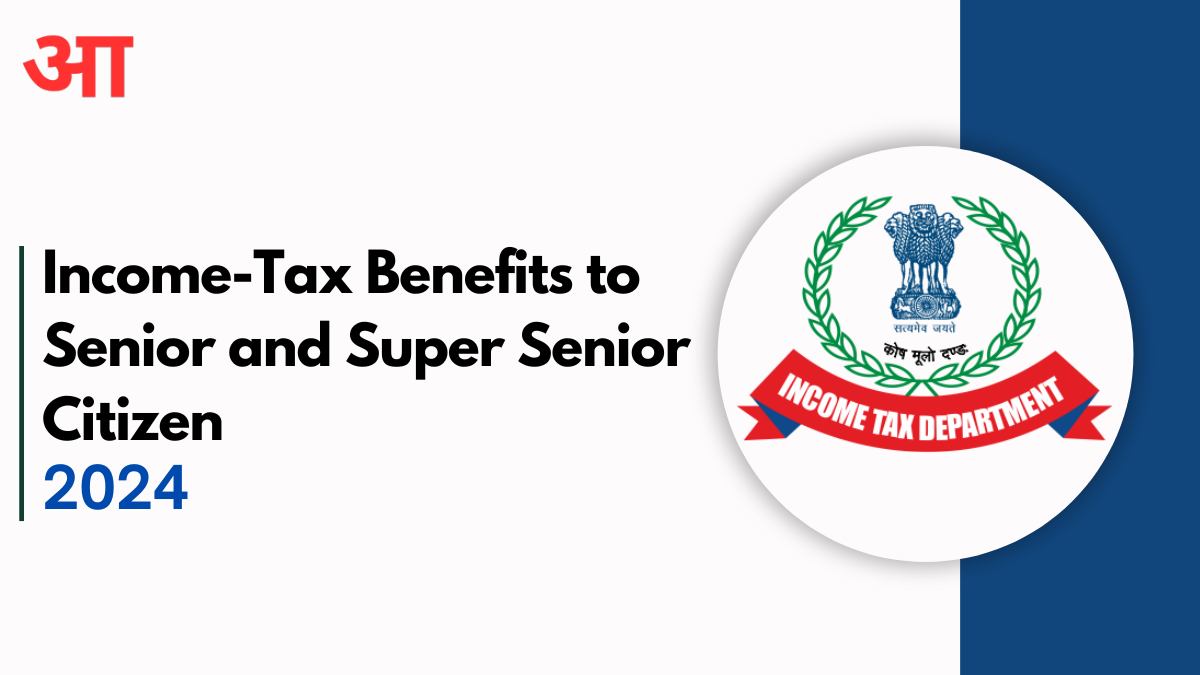Income tax is critical to financial planning, especially for senior citizens who often rely on fixed incomes. Understanding the tax provisions can help them optimize their tax savings. This guide provides a detailed overview of the income tax provisions applicable to senior and super-senior citizens per the Income Tax Act of 1961.
Contents
- Income-Tax Benefits to Senior and Super Senior Citizens
- Income Tax Slabs for Senior Citizens
- Income Tax Slabs for Super Senior Citizens
- New Tax Regime for Senior and Super Senior Citizens
- Income Sources for Senior and Super Senior Citizens
- Exemptions from Filing Income Tax Returns for Senior Citizens
- Tax Calculation for Senior Citizens
Income-Tax Benefits to Senior and Super Senior Citizens
The Income Tax Act of 1961 classifies individuals into three categories based on their age:
- Individuals up to 60 years of age
- Senior citizens, who are between 60 and 80 years old
- Super senior citizens, who are 80 years or older
Income Tax Slabs for Senior Citizens
Senior citizens aged 60 and above can pay taxes under either the old or new regime. However, non-resident senior citizens are not eligible for these tax slabs and are subject to the standard income tax provisions.
Under the old tax regime, the income tax slab rates for senior citizens for the financial year 2023-24 (assessment year 2024-25) are as follows:
Income Range (in Rs.) |
Tax Rate |
|---|---|
Up to 3,00,000 |
Nil |
3,00,001 to 5,00,000 |
5% of the income exceeding 3,00,000 |
5,00,001 to 10,00,000 |
10,000 + 20% of the income exceeding 5,00,000 |
Above 10,00,000 |
1,10,000 + 30% of the income exceeding 10,00,000 |
Income Tax Slabs for Super Senior Citizens
Super senior citizens, individuals aged 80 and above, can choose between the old and new tax regimes, depending on which is more advantageous.
Under the old tax regime, the income tax slab rates for super senior citizens for the financial year 2023-24 (assessment year 2024-25) are as follows:
Income Range (in Rs.) |
Tax Rate |
|---|---|
Up to 5,00,000 |
Nil |
5,00,001 to 10,00,000 |
20% of the income exceeding 5,00,000 |
Above 10,00,000 |
1,00,000 + 30% of the income exceeding 10,00,000 |
The tax calculated for senior and super senior citizens is subject to an additional Health and Education Cess at 4% of the income tax and applicable surcharge rates based on the total income.
New Tax Regime for Senior and Super Senior Citizens
The Finance Act of 2020 introduced a new tax regime that offers concessional tax rates for individual taxpayers. This regime does not differentiate between senior and super-senior citizens regarding tax slabs. However, taxpayers must forgo many deductions and exemptions available under the old tax regime.
The income tax slab rate under the new regime for the financial year 2023-24 is as follows:
Income Range (in Rs.) |
Tax Rate |
|---|---|
Up to 3,00,000 |
Nil |
3,00,001 to 6,00,000 |
5% |
6,00,001 to 9,00,000 |
10% |
9,00,001 to 12,00,000 |
15% |
12,00,001 to 15,00,000 |
20% |
Above 15,00,000 |
30% |
The Health and Education Cess remains at 4%, and a surcharge is applicable based on the total income.
Total Income |
Surcharge Rate |
|---|---|
Total income > Rs 50 lakhs but ≤ Rs 1 crore |
10% |
Total income > Rs 1 crore but ≤ Rs 2 crore |
15% |
Total income > Rs 2 crore |
25% |
Income Sources for Senior and Super Senior Citizens
Senior and super senior citizens typically have income from various sources, including:
- Pension
- Interest on savings accounts or fixed deposit schemes
- Rental income from property
- Capital gains
- Senior citizen saving schemes
- Reverse mortgage schemes
- Post office deposit schemes, among others
Exemptions from Filing Income Tax Returns for Senior Citizens
Senior citizens are exempt from filing income tax returns if they meet the following conditions:
- They are 75 years or older
- Their total income consists only of pension and interest income, with the interest income from any account maintained with the same bank where they receive their pension.
- They have submitted a declaration to the bank
- The bank has deducted TDS under Section 194P
Tax Calculation for Senior Citizens
To calculate the tax liability of senior or super senior citizens, their income from all sources is aggregated to give the gross total income. Under the old regime income tax slabs applicable for the financial year 2023-2024 (assessment year 2024-2025), various deductions and exemptions are available to senior citizens to reduce their tax liability. These include deductions under Sections 80C, 80CCC, 80CCD(1B), 80D, 80DD, 80DDB, 80G, and 80GGC. These deductions can significantly lower the tax liability, leading to substantial savings.
In conclusion, understanding these provisions can help senior and super-senior citizens plan their taxes effectively and maximize their savings. It’s always advisable to consult with a tax advisor or professional to understand these provisions thoroughly and maximize the benefits offered.
Click the link to know more.

Abhilash, an exam specialist with a passion for education, writes comprehensive articles on exam results and admit cards. His expertise ensures students receive reliable information and useful tips to excel in their exams.
